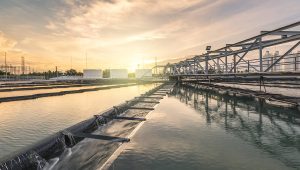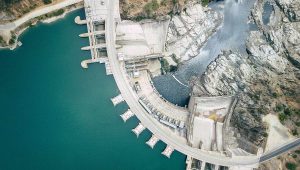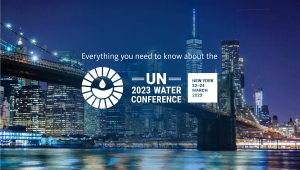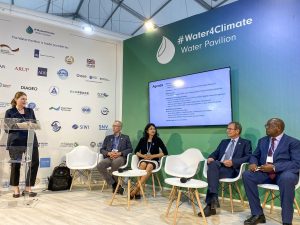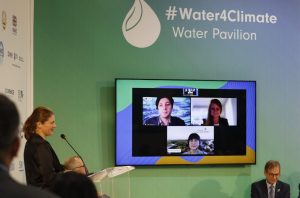Unpacking freshwater’s role: Joint climate action through integrated approaches
To limit global warming to 1.5°C, it is necessary that actions are not only carbon smart but also water wise. Freshwater must therefore be mainstreamed into climate mitigation efforts, including governance processes that support mitigation pathways.
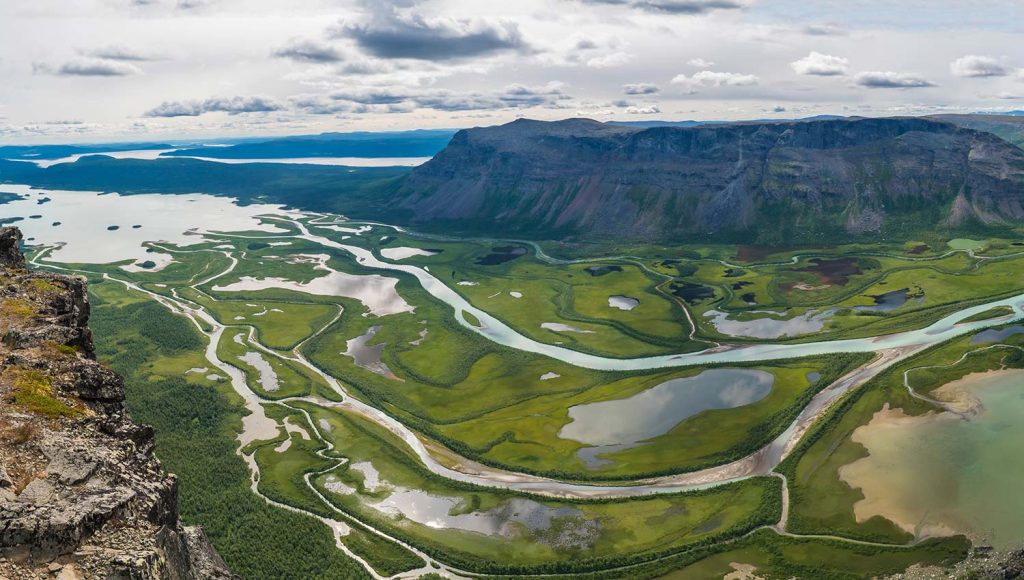
What is the role of freshwater in climate change mitigation? This spring Swedish Water House will host a webinar series diving into the chapters of the recently launched report “The essential drop to reach Net-Zero: Unpacking Freshwater’s Role in Climate Change Mitigation”.
In this final webinar of the series, we will present findings from the chapter “Achieving climate mitigation through integrated and cross-sectoral approaches”. In what ways are integrated approaches, that account for the interconnections between freshwater and climate mitigation, necessary to achieve water-wise climate mitigation?
Watch the recording
Enable cookies to show the video below. Or watch it directly on YouTube.
Agenda
- Welcoming notes – Moderator Malin Lundberg Ingemarsson, Stockholm International Water Institute
- Chapter presentation – Therese Rudebeck, WaterAid
- Water insights from Nationally Determined Contributions – David Hebart-Coleman, Stockholm International Water Institute
- Case studies:
- How can the S2S approach contribute to implementing climate change mitigation measures? – José Murillo, Stockholm International Water Institute
- Integrated water and landscape management: The case of the Rift Valley Lakes Basin, Ethiopia – Anna Tengberg, Stockholm International Water Institute
- Closing remarks – Marianne Kjellén
Speaker bios
Malin Lundberg Ingemarsson is Programme Manager at SIWI and is working on the links between water, landscapes, biodiversity and climate change. More recently, she has coordinated the work with the report “The essential drop to reach Net-Zero: Unpacking Freshwater’s Role in Climate Change Mitigation” and authored the chapter on climate mitigation measures for land systems.
Thérèse Rudebeck leads WaterAid Sweden’s policy and advocacy work on WASH and Climate, as well as Finance and WASH. Her previous research has focused on the links between corporate behaviours and water resources management. Thérèse is particularly interested in how companies’ commitment to Corporate Water Stewardship could be utilised to alleviate not only corporate water risk, but also to mitigate a range of interrelated societal challenges such as unsustainable water resources management, weak governance, inadequate water infrastructure, and insufficient WASH provision.
Anna Tengberg is Senior Advisor for the Swedish Water House (SWH) and adjunct professor at Lund University Centre for Sustainability Studies (LUCSUS). Her works focuses on the thematic area Water for Resilient Landscapes and she is also involved in SIWI’s ongoing programme in Ethiopia on Strengthening Water and Landscape Governance.
David Hebart-Coleman is an environmental planning and policy expert, with over 15 years of experience in environmental policy development. His professional background is in local and regional government in New Zealand. Recently, he provided water resources and climate change adaptation services as an expert within the African Water Facility in Cote D’Ivoire.
José Pablo Murillo is Programme Officer at SIWI. He supports the secretariat of the Action Platform for Source-to-Sea Management and the implementation of source-to-sea projects, as well as, SIWI’s work on water and climate. Before joining SIWI, he has worked on projects related to climate change mitigation and adaptation at the United Nations Environment Programme (UNEP), the Climate Change Directorate of the Ministry of Environment of Costa Rica (DCC MINAE), the German Development Agency (GIZ), and the Ministry of Planning and Political Economy of Costa Rica.
Marianne Kjellén, independent researcher and consultant, has thirty years of experience with water policy development and research, and field experience from Sub-Saharan Africa and Latin America. Working as Senior Water Advisor with the United Nations Development Programme for nearly seven years, Marianne persistently emphasised the water-and-climate connection, and especially water’s underestimated role for mitigation efforts.
Unpacking freshwater’s role
The report 'The essential drop to reach Net-Zero: Unpacking Freshwater's Role in Climate Change Mitigation' shows a new way of thinking about climate change that can lead to more effective solutions.
Explore the chapters

